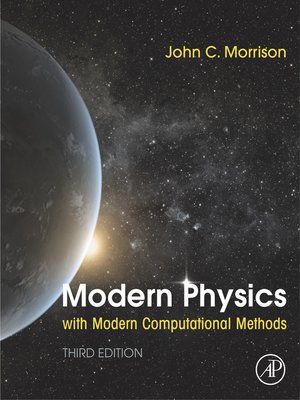
Sign up to save your library
With an OverDrive account, you can save your favorite libraries for at-a-glance information about availability. Find out more about OverDrive accounts.
Find this title in Libby, the library reading app by OverDrive.



Search for a digital library with this title
Title found at these libraries:
| Loading... |
Modern Physics with Modern Computational Methods, Third Edition presents the ideas that have shaped modern physics and provides an introduction to current research in the different fields of physics. Intended as the text for a first course in modern physics following an introductory course in physics with calculus, the book begins with a brief and focused account of experiments that led to the formulation of the new quantum theory, while ensuing chapters go more deeply into the underlying physics.In this new edition, the differential equations that arise are converted into sets of linear equation or matrix equations by making a finite difference approximation of the derivatives or by using the spline collocation method. MATLAB programs are described for solving the eigenvalue equations for a particle in a finite well and the simple harmonic oscillator and for solving the radial equation for hydrogen. The lowest-lying solutions of these problems are plotted using MATLAB and the physical significance of these solutions are discussed.Each of the later chapters conclude with a description of modern developments. Makes critical topics accessible by illustrating them with simple examples and figures Presents modern quantum mechanical concepts systematically and applies them consistently throughout the book Utilizes modern computational methods with MATLAB programs to solve the equations that arise in physics, and describes the programs and solutions in detail Covers foundational topics, including transition probabilities, crystal structure, reciprocal lattices, and Bloch theorem to build understanding of applications, such as lasers and semiconductor devices Features expanded exercises and problems at the end of each chapter as well as multiple appendices for quick reference






